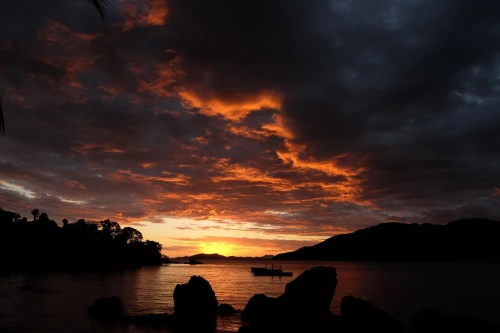Is Madagascar Dangerous?
When people ask about the safety in Madagascar, they’re usually thinking about things like health risks, crime, and getting around. Honestly, those concerns are valid. Madagascar’s remote areas and limited infrastructure can make travel tricky. This guide will guide you on what to watch out for and how to stay safe.
Key Features:
- Crime risks: petty theft, carjackings, armed home invasions, especially after dark.
- Health hazards include malaria, dengue, cholera, and limited access to medical services.
- Natural threats: cyclones, flooding, poor roads, and bandits on highways.
- eVisa access: easy online tourist visa with a 90-day validity period.
- Cultural awareness: follow local taboos (‘fady’) and respectful behavior.
- Remote area precautions: avoid isolated beaches, travel guided and in teams

Why People Ask "Is Madagascar Dangerous?
Madagascar is full of incredible wildlife, rich culture, and untouched natural beauty. But, its remote nature also brings certain real-world risks that travelers should be aware of. Many people wonder: Is Madagascar really a dangerous place? The answer isn’t black or white. It depends on where you go, what precautions you take, and how well you're informed and prepared.
Crime: What Travelers Should Know
Madagascar experiences both petty and violent crime. According to travel advisories, armed gangs operate throughout the country, carrying out home invasions, carjackings, robberies, and kidnappings. Tourist attractions, including city centers, national parks, and beaches, are not excluded. There are reports of tourists being targeted by fake “guides,” especially in coastal areas like Nosy Be and Sainte Marie.
In urban settings, pickpocketing and bag-slashing are prevalent. As one Reddit user noted:
“Be careful showing valuables, phone, camera, jewelry. The biggest crime you'll run into in Mada is pickpockets or folks who will slash your bag.”
Safety Recommendations:
- Avoid displaying valuables (phones, cameras) on the street or in cars.
- Avoid traveling or walking at night in poorly lit areas.
- Use pre-booked taxis or secure hotel transport.
- Follow accredited guides, particularly in parks and on beaches.
Health & Medical Considerations
The healthcare infrastructure in Madagascar is limited. Many hospitals require upfront payment, and serious situations may demand medical evacuation.
Some important health risks to keep in mind are:
- Malaria, dengue, and chikungunya are transmitted by mosquitoes across broad regions.
- Waterborne illnesses, like cholera, hepatitis, and schistosomiasis, are particularly prevalent in areas with poor water quality.
- Many rural areas have limited emergency services and lack reliable hospital care.
Health Precautions:
- Apply DEET repellent and use mosquito nets.
- Stick to bottled or boiled water. Try to avoid raw vegetables that might have been rinsed with tap water.
- Get vaccinated for hepatitis A, typhoid, and tetanus. Also, consider taking malaria prophylaxis.
Natural Disasters & Infrastructure
Madagascar’s environment brings unpredictable hazards:
- Cyclone season occurs from November to April. During this time, it brings heavy rain, flooding, landslides, and service interruptions.
- Rural roads are often unpaved, poorly maintained, and dangerous. Many roads are washed out during rain.
- Travelers on highways face the risk of bandit attacks. As a safety measure, the government often mandates that vehicles travel in convoys of at least ten.
Practical Steps:
- Avoid traveling on the road at night for your safety.
- Choose trustworthy drivers and tour operators.
- Travel together in groups on primary roads.
- Monitor the weather regularly during cyclone months.
Cultural Sensitivity & Social Considerations
Cultural sensitivity plays a crucial role when traveling in Madagascar. Understanding Malagasy culture is essential for safe interactions:
- Make an effort to respect local “fady.” These are cultural taboos that can differ from one region to another. Violating them might upset the community, even if it’s unintentional.
- Reported issues include child sex tourism in coastal areas. It is recommended to stay vigilant and follow local laws.
- Harassment against foreign women is uncommon. Remaining alert and dressing conservatively is recommended.
Tips:
- 1. Learn some helpful basic Malagasy phrases.
- 2. Wear modest clothing, particularly in rural areas.
- 3. Avoid unethical interactions, especially around vulnerable communities.
eVisa: Your Passport to Entry
Excited to learn more about the Madagascar eVisa? Here’s the latest update:
- Madagascar offers an eVisa, effective since 2023.
- Allows stays from 15, 30, 60, or 90 days, depending on your choice.
- You can enjoy a 90-day stay with a single-entry tourist visa.
- Apply 1 to 3 weeks before travel. The processing time varies depending on whether you select a standard or premium option.
Simple Steps to Apply:
- 1. Create an account on the eVisas portal.
- 2. Upload a passport-size photo and a scan.
- 3. Choose duration and enter travel dates.
- 4. Make your payment with a credit or debit card. Your eVisa will be sent to your email.
Balancing Danger and Discovery
So, is Madagascar dangerous? In some ways, yes. Travelers need to be mindful of crime, health concerns, poor road conditions, and unpredictable weather. But that doesn’t mean you should avoid it. Millions visit Madagascar each year, enjoying its beauty, wildlife, and warm hospitality, safely and memorably.
Smart Travel Tips:
- Honor and respect local cultures and cultural taboos.
- Plan your route and avoid traveling at night.
- It's really important to take the basics of health seriously.
- Use reliable guides and trusted transportation.
- Get your Madagascar eVisa in advance.